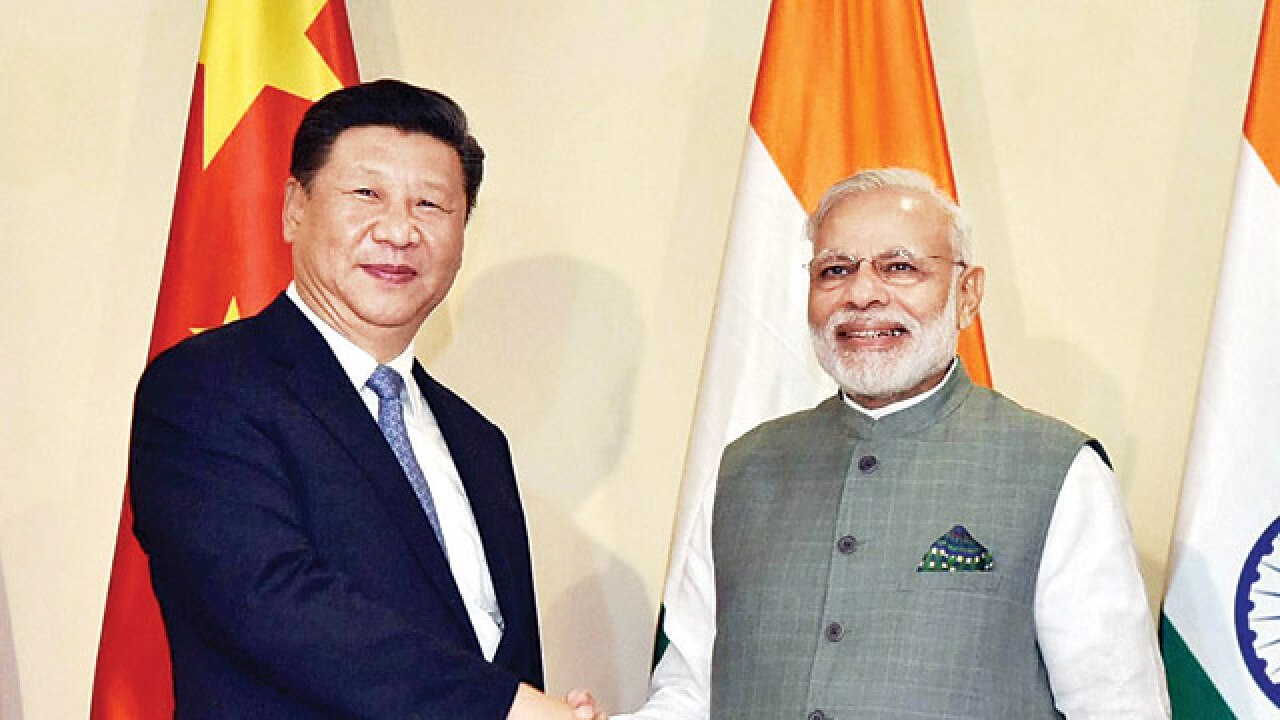
The month-long face-off between India and China on the Sikkim border is, doubtless, “different from the frictions that (had) happened (earlier) in the undefined sections of the border”, as Chinese Foreign Ministry spokesman Geng Shuang said on July 12. For India, it is different, but not in the way the Chinese see it.
How it is different for India is best illustrated by RSS-affiliated think-tank members continuing with their visits to China in spite of the border impasse. India has not allowed its amour propre to be ruffled by either official China’s belligerent reactions or the Chinese media’s fulminations. On the contrary, India’s ruling political forces and foreign policy establishment have responded with a cool which is calculated to impress that New Delhi has the “strategic maturity” to handle this as it had handled similar incidents in the past. Besides, New Delhi seems determined not to let the border situation affect economic and cultural interactions.
Like sections of the Indian media, RSS-linked outfits have been blowing hot and cold against China over the Sikkim stand-off. Despite their aggressive posturing, these think-tank members are going ahead with their visits to China. Last week, a delegation — two members of which were reported (wrongly) to have been denied visas — went ahead with their travel. Earlier this week, another delegation — of the India Foundation — went to Fudan University in Shanghai for its “annual bilateral dialogue”. This delegation reportedly includes Prafulla Ketkar, editor of the RSS weekly Organiser, which has been lashing out at China in its typical nationalist form, and Nehru Memorial Museum Library Director Shakti Sinha.
This is a reflection of the “strategic maturity” that Foreign Secretary S Jaishankar called upon China to exercise while speaking in Singapore on July 11 to mark the 25th anniversary of India-ASEAN relations. By “strategic maturity”, Jaishankar obviously meant “not allowing differences to become disputes” and not letting a single issue in one track hold to ransom a multifaceted relationship. In keeping with this principle, Jaishankar set the context by mentioning the current stand-off on the Sikkim border but did not play it up as a “confrontation”.
That India and China should “not allow differences to become disputes” was a point made by Jaishankar last month in Astana, Kazakhstan after Prime Minister Narendra Modi and Chinese President Xi Jinping met on the sidelines of the Shanghai Cooperation Organisation summit. He recalled this in Singapore as one of two points on which the two leaders had reached a consensus. The other point was that in this time of global uncertainty, India-China relations are a factor of stability. The strategic maturity of not allowing differences to become disputes is a good mantra to deal with the challenges that mark Sino-Indian relations. The relationship, as Jaishankar said, has so many dimensions and so much substance that reducing it to “black and white argumentation” cannot be a serious proposition.
Clearly, the message New Delhi wants to drive home is that India-China relations can’t be reduced to any one issue, such as the current military face-off. Or, for that matter, to the boundary issue and differences over Nuclear Suppliers Group membership, One Belt One Road, China-Pakistan Economic Corridor and terrorism (read, Masood Azhar). Implicit in this message is that just as New Delhi has not added to the strain by continuing to harp on these differences, Beijing should also not let any one issue become a dispute which dominates the relationship. The point seems to have hit home, for the Chinese Embassy in Delhi quickly responded by stating that the long-standing economic and cultural relations between the two countries would not be affected due to the army stand-off in the Sikkim sector. This is a positive response unlike the Chinese Embassy’s earlier statements (in the last month) on the issue, which tended to overplay the negative and confrontational.
However, strategic maturity cannot resolve the situation on the ground in Sikkim. It remains to be seen how the two countries address that while seeking to retain their respective “ground realities”.
The author is an independent political and foreign affairs commentator based in New Delhi.